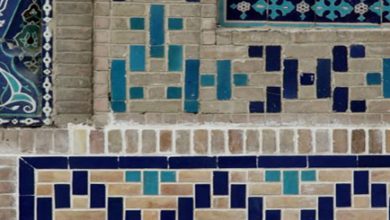DAUD AS – PART 2

The Rulings of Daud AS
Apart from kingship, Daud AS was a judge amongst his people, and discharged his duties with utmost justice.
Allah says:
[We said], “O Daud, indeed We have made you a successor upon the earth, so judge between the people in truth and do not follow [your own] desire, as it will lead you astray from the way of Allah.” Indeed, those who go astray from the way of Allah will have a severe punishment for having forgotten the Day of Account. (Al Qur’an 38:26).
Daud AS used to have a special and private sanctuary (mihrab) where he could be alone to perform his worship. This area was off limits to the public. One night, a strange incident happened. Two people entered the mihrab by climbing over the walls. Daud AS was understandably alarmed when he saw them. The two men told him not to fear. They were claimants, and apparently one had wronged the other, so they wanted to seek Daud’s AS judgment on the matter.
They said, “Fear not. [We are] two adversaries, one of whom has wronged the other, so judge between us with truth and do not exceed [it] and guide us to the sound path.
Indeed this, my brother, has ninety-nine ewes, and I have one ewe; so he said, ‘Entrust her to me,’ and he overpowered me in speech.”
[Daud] said, “He has certainly wronged you in demanding your ewe [in addition] to his ewes. And indeed, many associates oppress one another, except for those who believe and do righteous deeds – and few are they.” (Al Qur’an 38:24).
Something was disturbing about the situation – the bizarre materialisation of these two men, and the strange nature of their dispute. It is reported that the two men then vanished into thin air. Daud AS realized that the two men were in fact angels disguised as men, and that he had been tried. He was so afraid that he immediately repented and sought Allah’s forgiveness, falling down in prostration to his Lord.
We do not have any authentic reports on what his wrong was. According to some, Daud AS had erred in giving judgment by listening to only one side of the story. According to Israelite narratives, Daud AS had 99 wives and wanted one more – however, there is no confirmation of this under Islamic traditions. If Allah SWT had wanted the nature of his wrongdoing to be known to us, He would have disclosed it, but in keeping such details concealed, it is clear that the details of his mistake are irrelevant to us. What is relevant is that he prostrated to Allah in repentance for his error, and that Allah forgave him for it. When the following verse was revealed, Muhammad (SAW) also prostrated:
And Daud became certain that We had tried him, and he asked forgiveness of his Lord and fell down bowing [in prostration] and turned in repentance [to Allah]. So We forgave him that; and indeed, for him is nearness to Us and a good place of return. (Al Qur’an 38:21-38:25).
Daud AS was granted a son, Sulaiman AS. Sulaiman AS was, like his father, endowed with extreme intelligence and justice. He used to observe the way his father rendered judgments, and over time, Allah SWT endowed Sulaiman AS with wisdom that was deeper and greater than his father’s.
In one incident, two people presented their dispute. The claimant asserted that his neighbour’s flock of sheep had entered his farmland and grazed all the crops, destroying that season’s harvest. This fact was confirmed by the owner of the sheep. Daud AS ruled that the owner of the sheep was to hand over all his sheep to the owner of the land as compensation for the lost harvest. However, Sulaiman AS had a better idea. Instead of depriving the owner of the sheep entirely, he suggested that the two claimants swapped their assets. The owner of the land was to take all the sheep, and benefit from its produce, including wool, milk and ewes. During this period, the owner of the sheep was to take care of the first claimant’s farmland, until the crops were rehabilitated and the farmland was restored back to its original condition. When the farmland was restored, then the two parties could take back his own assets. Such was the resoundingly sound judgment of Sulaiman AS, which his father agreed to.
In another incident, there were two women – one older and one younger, both of whom had infants. A wolf or a fox kidnapped one of the babies and carried it off, never to be seen again. Now the two women claimed that the remaining infant was hers. Daud AS judged in favour of the older woman. Sulaiman AS was not completely convinced, so he suggested to both women to saw the baby in half, and give each woman half of the infant. The younger woman was horrified to hear this, and she screamed that she would rather give up her claim to the baby instead of seeing it hurt. The older woman was silent. It was clear that the one who jumped at the defence of the baby, and displayed her maternal protective instinct was the real mother of the infant, and thus Daud’s AS original ruling was rescinded and the baby was reunited with its real mother, the younger woman.
Sulaiman AS may have been the younger one, but Allah bestowed upon him a deeper understanding of the circumstances, and therefore a higher level of wisdom than his father. Here, we understand that people can be presented with the same facts, same education and even the same circumstances, but the individual comprehension and understanding of a matter still varies according to the knowledge that Allah SWT chooses to grant a person.


![Photo of ADAM AS [ PART 1]](/wp-content/uploads/2020/09/d6086de322f98f66cc694f32ea284557_XL_0-390x220.jpg)
![Photo of ADAM AS [ PART 2 ]](/wp-content/uploads/2020/09/106117794.Gu9ZCkGy-390x220.jpg)
![Photo of NUH AS [ PART 1]](/wp-content/uploads/2020/09/130243396.pTC5gkej-390x220.jpg)